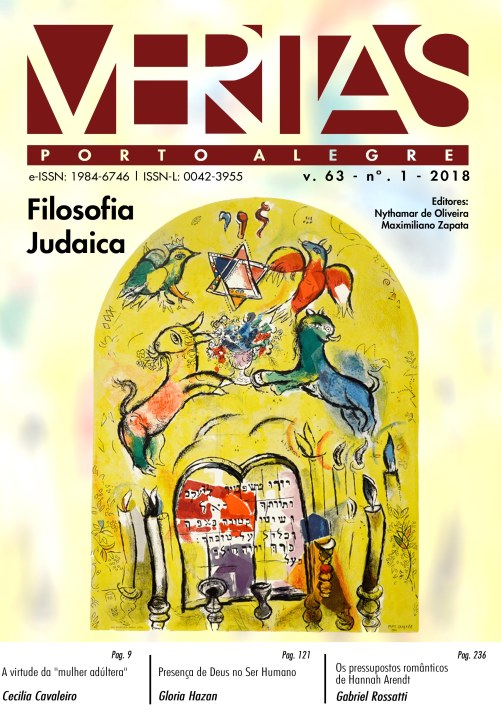The limits of Amy Allen's analysis of gender subordination in The Politics of Our Selves
DOI:
https://doi.org/10.15448/84-6746.2018.1.27903Palavras-chave:
Amy Allen, Subordinação de Gênero, Teoria Crítica, Habermas, FoucaultResumo
In this article, I argue that Amy Allen’s approach of gender issues in The Politics of Our Selves is precarious and partial insofar as it is focused on an analysis of subjection aiming to explain “how subordinated individuals come to be psychically invested in and attached to their subornation” 2. Although this is an undeniable aspect of gender subordination, it does not tackle the complexity of its symbolic and material causes. My main thesis is that Allen does not offer the best model for feminist Critical Theory in light of the complexities of capitalist societies, much less to the feminist struggles in the Global South, deeply marked by poverty, social inequality, racism and all sorts of violence against women.
***Os limites da análise de Amy Allen sobre a subordinação de gênero em The Politics of Our Selves***
Neste artigo, argumento que a abordagem de Amy Allen a respeito da questão de gênero em The Politics of Our Selves é precária e parcial na medida em que é focada em uma análise da sujeição que visa explicar “como indivíduos subordinados se tornam psiquicamente atados à sua própria subordinação”. Embora este seja um aspecto inegável da subordinação de gênero, não expressa a complexidade das suas causas materiais e simbólicas. A minha tese central é a de que Allen não oferece o melhor modelo para a Teoria Crítica feminista à luz das complexidades das sociedades capitalistas, muito menos, ouso dizer, para as lutas feministas no Sul Global, profundamente marcado pela pobreza, pela desigualdade social, pelo racismo e outros tipos de violência contra a mulher.
Downloads
Referências
ALLEN, Amy. The politics of our selves: Power, autonomy, and gender in contemporary critical theory. New York: Columbia University Press, 2007. DOI: https://doi.org/10.7312/alle13622
______. The end of progress: Decolonizing the normative foundations of critical theory. New York: Columbia University Press, 2015.
______. “Emancipation without Utopia Subjection, Modernity”. In: Hypatia vol. 30, no. 3 (Summer), 2015.
BENHABIB, Seyla. Critique, norm, and utopia: A study of the foundations of critical theory. New York: Columbia University Press, 1986.
______. Situating the Self: Gender, Community, and Postmodernism in Contemporary Ethics. New York: Routledge; London: Polity, 1992.
______. The Claims of Culture: Equality and Diversity in the Global Era. Princeton: Princeton University Press, 2002.
GATENS, Moira. “Let's talk story: Gender and the narrative self”. In: Critical Horizons, 15(1), 40-51, 2014. DOI: https://doi.org/10.1179/1440991713Z.00000000019




















